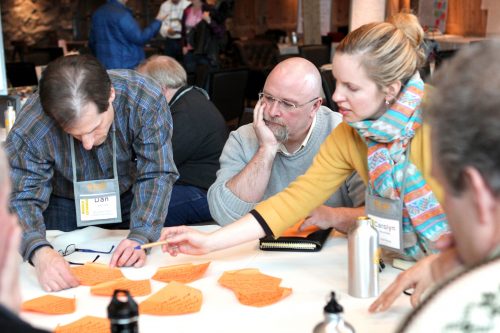
eLab Accelerator 2016
Rhode Island Microgrid Program Planning

Project Objective
Our objective is to create a successful and cost-effective state-directed program to foster microgrid development, critical facility energy assurance and resilience for communities and public agencies in Rhode Island.

Project Description
The State of Rhode Island has engaged a consultant team to help develop a statewide microgrid program to provide energy surety and resilience for critical facilities and communities. This planning project lasts through December 2016. Representatives from the State, the consultant team and the local utility are using the Accelerator to develop recommendations for program design and implementation. We will consider polices, business models, funding sources and incentives, and cost-benefit analysis techniques that foster economical microgrid development. We will draw on lessons learned and best practices from similar efforts in other states. Additional project objectives include development of a GIS-based critical facility database and identification of two or more pilot projects that will seek further funding for implementation.

Progress Made to Date (pre-Accelerator)
This project kicked off in December 2015. Work to date has focused on research and interviews with a broad range of stakeholders and participants about best practices and lessons learned from similar efforts in California, Connecticut, Maryland, Massachusetts, Minnesota, New Jersey, New York, Vermont and elsewhere. This work informs out team’s discussions at the Accelerator. The consultant team has also started work in collaboration with state agencies on development of the critical facility database and energy surety planning tools.

Post-Accelerator Outcomes
At Accelerator, the team explored the state and local utility's options to enable microgrids for critical facilities in sectors and locations identified by the Rhode Island Emergency Management Agency. Through conversations among the team and with eLab expert faculty, OER developed an understanding of parameters and requirements for key stakeholders, clarified potential utility and state roles in microgrid enablement, and identified a strawman structure for pilot and then program development. The team champions are now working to develop a synthesis program design for group input and aligning with the state's critical infrastructure plan. In mid-summer, the group will meet to establish shared metrics for program success, building towards a defined program for staff consideration by end of 2016. The state aims to leverage their single-utility structure, existing resources and commitment to clean energy development, and lessons learned from other states to create the nation's leading critical facility microgrid program.